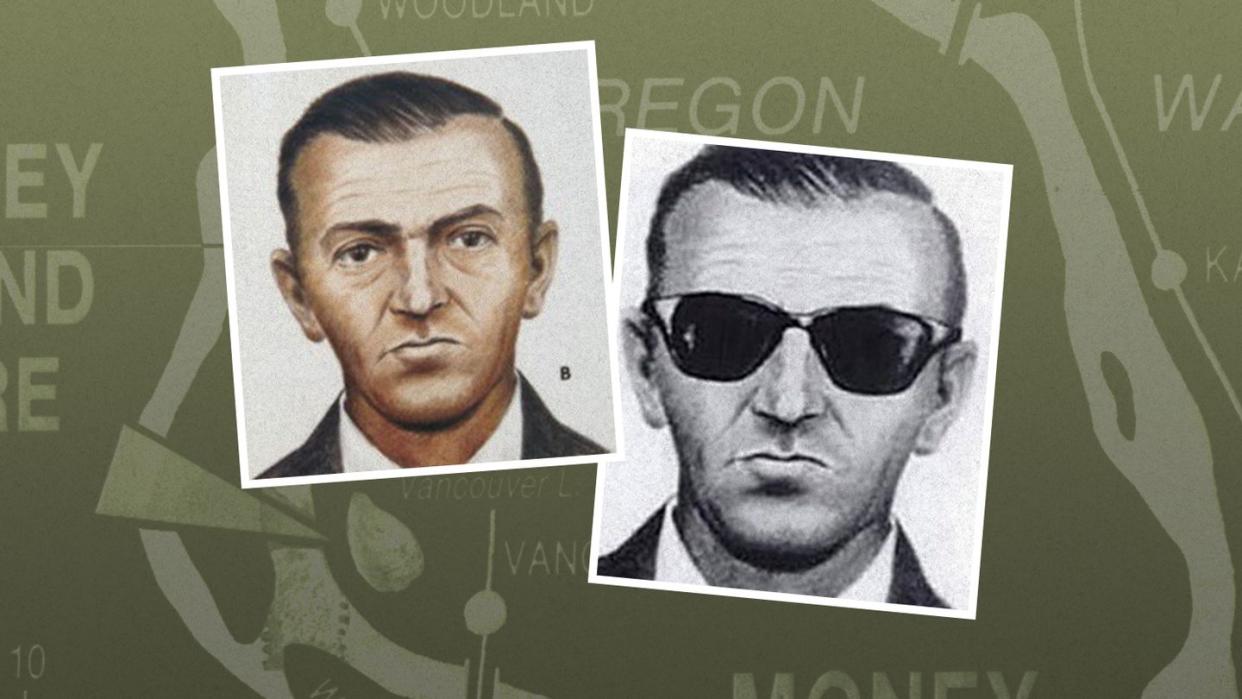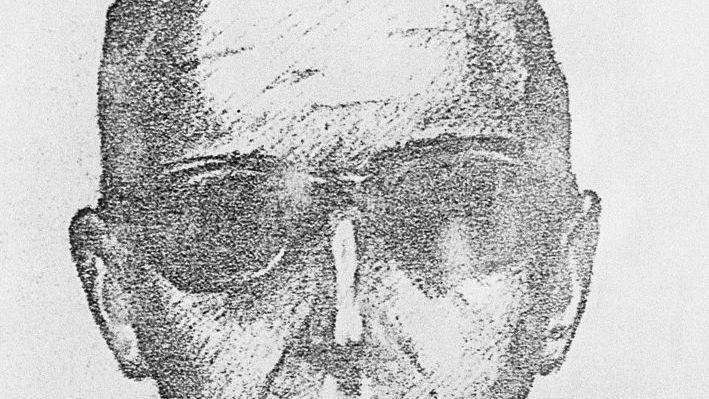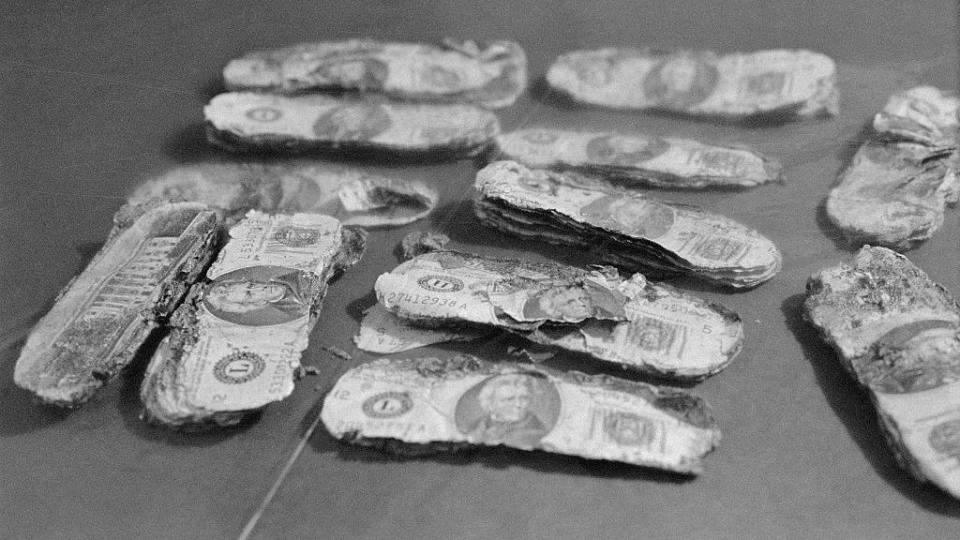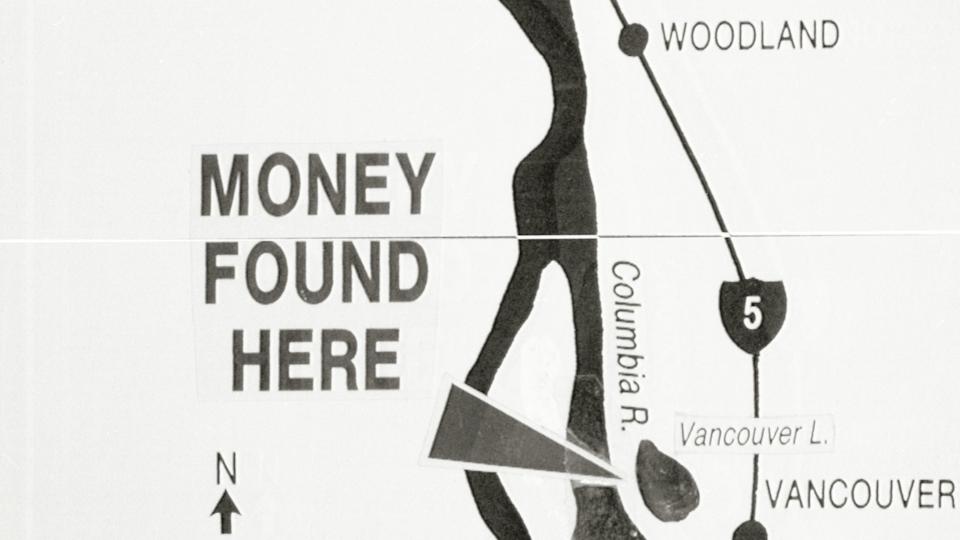A Dazzling Piece of Evidence May Finally End the Mystery of D.B. Cooper's Identity

- Oops!Something went wrong.Please try again later.
"Hearst Magazines and Yahoo may earn commission or revenue on some items through these links."
A former professional blackjack player may be on the cusp of cracking one of the most notorious cold cases in history—one so puzzling, even the FBI couldn’t solve it. But first, the sleuth just needs to get his hands on a discarded black tie.
Eric Ulis of Michigan is so convinced that he’s the man to finally solve the infamous D.B. Cooper skyjacking of Thanksgiving Eve 1971—the only unsolved commercial airline hijacking in U.S. history—that he’s literally suing the FBI to make it happen.
In 2022, Ulis laid out his theory on how the remnants of an alloy that the FBI reportedly found on Cooper’s tossed tie pinpoint the skyjacker’s workplace to a “Midland, Pennsylvania-based manufacturer of titanium-antimony.” All Ulis needs now, he feels, is the samples off the tie themselves, which is why he’s pursuing litigation to procure them.
Ulis, like many other amateur sleuths, hopes to finally answer the 51-year-old question: “Who was D.B. Cooper?” But before he can address that one, we first have to ask another: “Why do people still care about D.B. Cooper?”
Let’s start with the fateful day that we (sort of) met the man (incorrectly) called D.B. Cooper.

D.B. Cooper: The Mystery Man
It’s November 24, 1971.
The #1 movie in America is The French Connection, a gritty neo-noir where handsome Hollywood stars Gene Hackman and Roy Scheider get stylishly dirtied up to play NYPD cops chasing down heroin smugglers. At the same time, the #1 song on the radio is Isaac Hayes's “Theme from Shaft,” the iconic song soundtracking a film about the impeccably tailored detective John Shaft, who would just as soon work with the pushers and pimps of Harlem than take help from the NYPD, as long as he gets justice. Which is all to suggest that in November 1971, the U.S. hasn’t quite figured out who to root for in the proverbial game of “cops and robbers.”

But the mystery man of the hour on that November afternoon looked nothing like the gritty-but-glamorous stars of the day's premier crime dramas. He was, as the FBI described him, a "white male, 6'1" tall, 170-175 pounds, age-mid-forties, olive complexion, brown eyes, black hair, conventional cut, parted on left."
He purchased, in cash, a one-way ticket aboard Northwest Orient Airlines Flight 305 from Portland to Seattle. He paid $18.52, and gave the name “Dan Cooper.” There was no ID checked, no security protocols of any kind. “Dan Cooper” was permitted to board his flight unencumbered.
This might be the point in the story where you think, “Well, they couldn't have expected that somebody would hijack the plane.” But while apparently they didn't, they absolutely should have.
These days, our idea of plane hijackers is either D.B. Cooper, the terrorists behind the 9/11 attacks, or those scrappy prisoners from Con Air. But by 1971, skyjacking was a fairly regular occurrence. In fact, Vox notes that "between May 1961 and the end of 1972, there were 159 hijackings in American airspace." Hijackings, or as they were colloquially called, "skyjackings," were common enough that, the year prior to the D.B. Cooper affair, the British comedy troupe Monty Python aired a sketch mocking the absurd frequency of the act.
D.B. Cooper's Skyjacking, Explained
"Onboard the Boeing jet, [Cooper] had a bourbon and soda, smoked cigarettes, and gave a flight attendant a note that said he had a bomb," Biography reports. In fact, the flight attendant to whom the note was passed, Florence Schaffner, didn't even read the note initially.
Geoffrey Gray's Skyjack: The Hunt for D.B. Cooper goes into great detail on the degree to which flight attendants of the time were subject to harassment and inappropriate behavior from passengers. Schaffner likely assumed the note was merely a suggestive missive from an amorous traveler until the man whispered to her, "Miss, you'd better look at that note. I have a bomb."
But did Cooper really have a bomb? Well, he certainly had "a case containing wires and red sticks," and that was enough for him to get his demands heard. What did Cooper want? "$200,000 in $20 bills, as well as four parachutes."

The Great D.B. Cooper Escape
Here’s where we get our first bit of evidence that Cooper knew a bit more than your usual hijacker. Cooper's request of four parachutes was made so that those on the ground would think he intended to take a hostage with him. Had he only requested two (parachuting always involves two chutes: the primary and the backup), there was a chance he would have been given dummy chutes so that he would plummet to his death rather than get away with the money. (Our anti-hijacking strategies back then were pretty bad, and this one wasn't even the dumbest idea we had.) But they wouldn't risk that happening to an innocent hostage. Cooper was in control.
That meant Cooper got his way. The plane landed in Seattle, the hostages were exchanged for the ransom, and a skeleton crew ("two pilots, a flight engineer, and a flight attendant") took Cooper back in the air, toward Mexico City. Cooper instructed the pilots to "fly lower than 10,000 feet, at a speed under 200 knots" and to lower the planes aft stairs. He then descended those stairs, unseen, and parachuted into the night, with $200,000 in tow, leaving behind only a black necktie (and some cigarette butts that have since gone missing).
How Dan Cooper Became D.B. Cooper
What Cooper couldn't control, however, was whether anyone got his fake name right.
You'll recall that he gave the name "Dan Cooper" when he purchased his plane ticket. He possibly took the moniker from a Franco-Belgian comic book entitled Les Aventures de Dan Cooper, whose stories notably involved "jumping out of a plane with a parachute, as well as a ransom being delivered in a knapsack." So how did it become D.B.? Simple. Reporter James Long, of the Oregon Journal in Portland, simply got the name wrong. "Either because the Northwest [source] gave it to me wrong or because the noisy [phone] connection helped me misunderstand it," Long would later confess to the LA Times.
But it stuck, and D.B. Cooper became the name that earned both infamy and, in some corners, folk-hero status amongst a fading counter-culture desperate for remnants of the "anti-establishment."
What Happened to D.B. Cooper?
So what became of D.B. Cooper? No one truly knows. While the ransom money never entered circulation, some of it did turn up in 1980, badly decomposed and buried on the north shore of the Columbia River, discovered by 8-year-old Brian Ingram.

Though suspects emerged throughout the years, all were ruled out for various reasons by the FBI. And in 2016, the FBI officially closed the book on the D.B. Cooper investigation, choosing to devote its resources elsewhere.
But that hasn't stopped citizen detectives like Eric Ulis from trying to crack the Cooper case.
Why Do We Still Care About D.B. Cooper?
Which brings us back to the "Why?" What keeps people coming back to D.B. Cooper, long after the crime, the investigation, and that entire era of unsecured, casual air travel are all consigned to the history books?
Sean and Carrie McCabe, whose true-crime podcast Ain't It Scary? with Sean & Carrie covered Cooper in an early episode, have a hunch about why the intrepid airplane criminal in the cool eyewear remains in the public consciousness.
"First, like all of the best true crime stories, it's because there's no clear answer," Sean tells PopMech. "We don't know who the guy was, and we likely never will know for sure. And that leaves room for everyone to bring their own opinion and their own investigator hat, and speculate without any fear of ever really being proven wrong."
Carrie suggests that it's also the nature of Cooper's crime that keeps people coming back to it:
"D.B. Cooper was kind of a cool figure. He didn't hurt anybody (aside from maybe himself) in his crime, he didn't use aggressive physical force. I think that makes him an object of fascination that people can be more openly interested in than, say, a serial killer. Being interested in true crime often comes with a lot of caveats - "I don't like Jeffrey Dahmer, I just like learning more about his pathology", etc. - but with Cooper's relatively victimless crime, you don't have to feel creepy if you're interested."
"We don't have to co-sign Dan Cooper's actions for a little tiny part of us to wish we were him," Sean concurs.
When pressed if they think the D.B. Cooper case will ever be solved, the podcasters concede it's unlikely. "God, I'm trying to think of the "fun" answer, but... no?" Sean says. "Probably not. None of the money has ever been spent, which makes me think our 'Mr. Cooper' probably died in the jump."
"I think the only way it'll ever be cracked is if...," Carrie adds, "...at this point, someone comes forward with concrete proof that their deceased relative was Cooper, like a stack of the missing money."
Or maybe, just maybe, some residue of alloy on a tie could be the thing to crack this whole case wide open...
You Might Also Like

